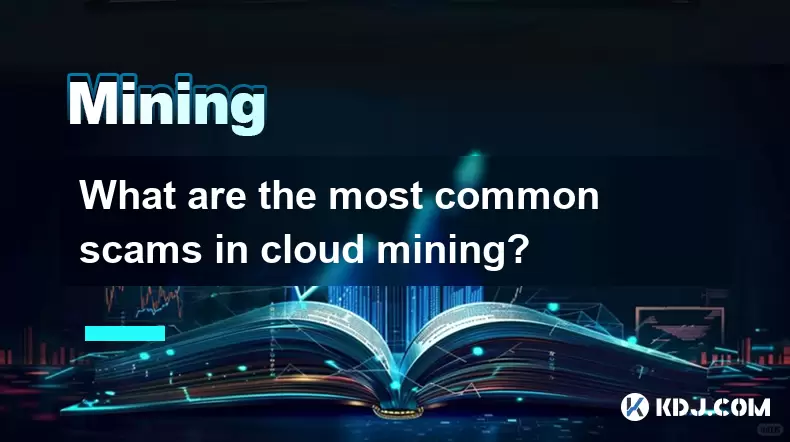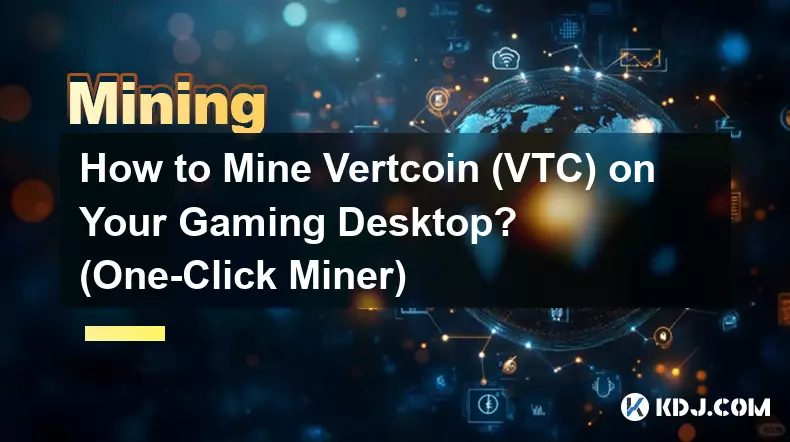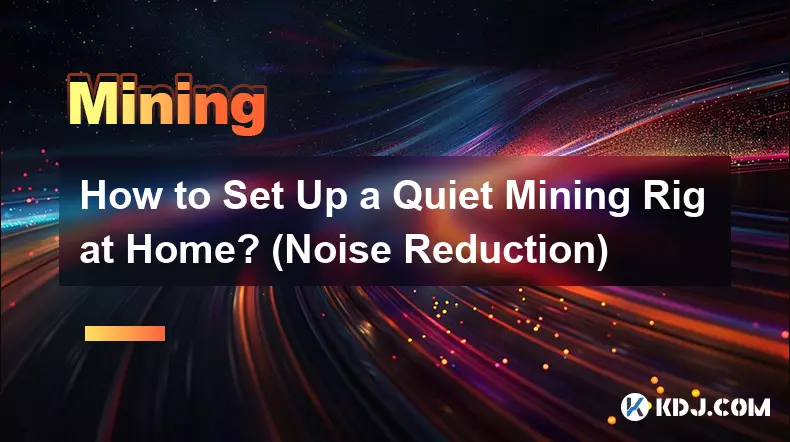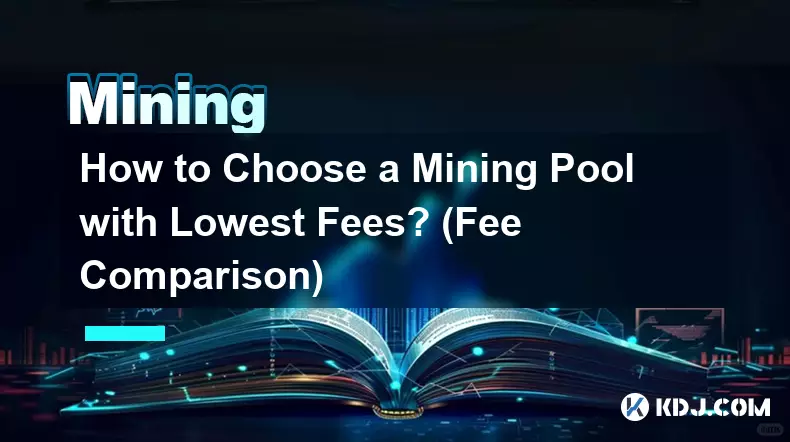-
 bitcoin
bitcoin $87959.907984 USD
1.34% -
 ethereum
ethereum $2920.497338 USD
3.04% -
 tether
tether $0.999775 USD
0.00% -
 xrp
xrp $2.237324 USD
8.12% -
 bnb
bnb $860.243768 USD
0.90% -
 solana
solana $138.089498 USD
5.43% -
 usd-coin
usd-coin $0.999807 USD
0.01% -
 tron
tron $0.272801 USD
-1.53% -
 dogecoin
dogecoin $0.150904 USD
2.96% -
 cardano
cardano $0.421635 USD
1.97% -
 hyperliquid
hyperliquid $32.152445 USD
2.23% -
 bitcoin-cash
bitcoin-cash $533.301069 USD
-1.94% -
 chainlink
chainlink $12.953417 USD
2.68% -
 unus-sed-leo
unus-sed-leo $9.535951 USD
0.73% -
 zcash
zcash $521.483386 USD
-2.87%
What are the most common scams in cloud mining?
Cloud mining scams exploit cryptocurrency's complexity, using fake infrastructure, Ponzi schemes, and hidden fees to defraud investors.
Jul 15, 2025 at 07:21 pm

Understanding Cloud Mining Scams
Cloud mining allows users to mine cryptocurrencies without owning or managing physical hardware. Instead, they rent computing power from cloud mining providers. While this model offers convenience and accessibility, it has also become a breeding ground for scams. Scammers exploit the technical complexity and high returns associated with cryptocurrency mining to deceive investors.
The primary reason cloud mining scams thrive is due to the lack of transparency in many platforms. Users are often unable to verify whether the provider actually owns the mining infrastructure they claim. This opacity makes it easy for fraudulent entities to operate Ponzi schemes or fake mining operations under the guise of legitimate services.
Ponzi Schemes Disguised as Mining Contracts
One of the most prevalent types of scams in cloud mining is the Ponzi scheme, where early investors are paid returns from the funds of new participants rather than actual profits generated by mining. These schemes promise unrealistic returns and use aggressive marketing to attract new users.
- Promises of guaranteed high returns with minimal risk
- Lack of detailed information about mining facilities
- Pressure to refer others to earn bonuses
These red flags should raise suspicion. Legitimate cloud mining platforms cannot guarantee fixed returns due to the volatile nature of cryptocurrency prices and mining difficulty adjustments. Ponzi-based platforms typically collapse once the influx of new investors slows down, leaving later participants with losses.
Fake Cloud Mining Providers
Another common scam involves entirely fictitious mining companies that operate solely online. These entities may have professional websites, whitepapers, and customer support, but they do not own any real mining equipment. Instead, they collect user deposits and disappear after accumulating enough funds.
- No verifiable location or company registration details
- Absence of live mining data or real-time dashboards
- Use of generic stock images for mining farms
Some of these fake providers even offer referral programs to incentivize recruitment, further spreading the scam. Users who sign up rarely see any returns and often face difficulties withdrawing their initial investments.
Hidden Fees and Unfair Contract Terms
Not all cloud mining scams are completely fake. Some platforms are partially legitimate but contain deceptive contract terms and hidden fees that make profitability nearly impossible. These contracts may include maintenance fees, electricity costs, or withdrawal limits that eat into potential earnings.
- High daily maintenance fees that exceed mined amounts
- Contracts that auto-renew without clear opt-out options
- Withdrawal thresholds set too high to be practical
In some cases, platforms charge so many fees that users end up losing money despite consistent mining activity. It's crucial to read the fine print before signing any agreement and to compare fee structures across different providers.
Impersonation and Phishing Attacks
Phishing attacks targeting cloud mining users have become increasingly sophisticated. Scammers create fake login pages or impersonate well-known cloud mining platforms through emails, social media, or cloned websites. The goal is to steal login credentials or private keys to access user accounts or wallets.
- Emails claiming urgent account verification or maintenance
- Links redirecting to look-alike domains
- Fake customer support channels on messaging apps
Once scammers gain access, they can drain funds or lock users out of their accounts. Always verify URLs, enable two-factor authentication (2FA), and avoid clicking on unsolicited links related to your cloud mining accounts.
How to Spot and Avoid Cloud Mining Scams
Avoiding cloud mining scams requires due diligence and skepticism toward overly promising offers. Here are essential steps to protect yourself:
- Research the company’s background, including team members and office locations
- Check forums and review sites for complaints or reports of suspicious behavior
- Look for third-party audits or proof of mining infrastructure
- Verify if the platform supports withdrawals of mined coins regularly
- Never invest more than you can afford to lose
Also, consider starting with small investments on unfamiliar platforms to test their legitimacy before committing larger sums.
Frequently Asked Questions
Q: How can I verify if a cloud mining provider is real?A: Look for transparency in operations such as public mining farm locations, live hash rate monitoring, and verifiable contact details. Reputable providers often allow third-party audits or publish real-time performance data.
Q: Are there any regulatory bodies overseeing cloud mining services?A: Currently, cloud mining operates in a largely unregulated space. However, some jurisdictions have begun applying financial regulations to crypto-related services. Always check if the provider complies with local laws or holds any licenses.
Q: Can cloud mining ever be profitable?A: Yes, cloud mining can be profitable under the right conditions, such as favorable pricing, low fees, and efficient mining contracts. However, profitability fluctuates based on cryptocurrency prices, network difficulty, and operational costs.
Q: What should I do if I’ve been scammed by a cloud mining service?A: Immediately stop all transactions and report the incident to relevant authorities such as cybercrime units or financial regulators. You can also post your experience on community forums to warn others and seek legal advice if possible.
Disclaimer:info@kdj.com
The information provided is not trading advice. kdj.com does not assume any responsibility for any investments made based on the information provided in this article. Cryptocurrencies are highly volatile and it is highly recommended that you invest with caution after thorough research!
If you believe that the content used on this website infringes your copyright, please contact us immediately (info@kdj.com) and we will delete it promptly.
- UAE Investor Secures Major Stake in Trump-Linked Crypto Firm Amidst Shifting Geopolitical Tides
- 2026-02-02 07:10:01
- Pepe Meme Coin: Navigating the Hype, Price Predictions, and Future Outlook in 2026 and Beyond
- 2026-02-02 07:05:01
- Blockchain Gaming's Quiet Revolution: Unpacking Latest Trends and Industry Insights Amidst Market Shifts
- 2026-02-02 06:30:01
- IPO Genie, Tokenization, and YouTubers: The Big Apple's Next Big Bet on Democratized Wealth
- 2026-02-02 06:40:02
- Aptos in a Bind: Downtrend Deepens, But a Brief Relief Bounce Looms Before the Next Plunge
- 2026-02-02 07:00:01
- Pi Network, ATL, and Community: Navigating the Currents of a Mobile-First Crypto Movement
- 2026-02-02 07:00:01
Related knowledge

How to Spot a Cloud Mining Scam? (Red Flags to Watch For)
Feb 02,2026 at 08:20am
Unrealistic Return Promises1. Platforms advertising guaranteed daily returns above 1–2% without disclosing underlying hardware, electricity costs, or ...

How to Earn Passive Income with DePIN Mining? (New Trend 2026)
Feb 01,2026 at 12:40pm
Understanding DePIN Mining Mechanics1. DePIN mining relies on real-world infrastructure participation rather than computational hashing. Users deploy ...

How to Mine Vertcoin (VTC) on Your Gaming Desktop? (One-Click Miner)
Feb 02,2026 at 03:39am
Understanding Vertcoin's Mining Algorithm1. Vertcoin uses the Verthash algorithm, which is intentionally memory-hard and designed to resist ASIC domin...

How to Set Up a Quiet Mining Rig at Home? (Noise Reduction)
Feb 01,2026 at 11:00pm
Acoustic Enclosure Design1. Use rigid, dense materials such as MDF or acoustic-grade plywood for the enclosure walls to block mid-to-high frequency no...

How to Choose a Mining Pool with Lowest Fees? (Fee Comparison)
Feb 02,2026 at 02:39am
Understanding Mining Pool Fee Structures1. Pool operators charge fees to cover infrastructure, maintenance, and administrative costs. These fees manif...

How to Mine Bitcoin on Mac (M1/M2/M3)? (Software Tutorial)
Feb 01,2026 at 07:19pm
Understanding Bitcoin Mining on Apple Silicon1. Bitcoin mining relies on solving cryptographic puzzles using computational power, and Apple’s M1, M2, ...

How to Spot a Cloud Mining Scam? (Red Flags to Watch For)
Feb 02,2026 at 08:20am
Unrealistic Return Promises1. Platforms advertising guaranteed daily returns above 1–2% without disclosing underlying hardware, electricity costs, or ...

How to Earn Passive Income with DePIN Mining? (New Trend 2026)
Feb 01,2026 at 12:40pm
Understanding DePIN Mining Mechanics1. DePIN mining relies on real-world infrastructure participation rather than computational hashing. Users deploy ...

How to Mine Vertcoin (VTC) on Your Gaming Desktop? (One-Click Miner)
Feb 02,2026 at 03:39am
Understanding Vertcoin's Mining Algorithm1. Vertcoin uses the Verthash algorithm, which is intentionally memory-hard and designed to resist ASIC domin...

How to Set Up a Quiet Mining Rig at Home? (Noise Reduction)
Feb 01,2026 at 11:00pm
Acoustic Enclosure Design1. Use rigid, dense materials such as MDF or acoustic-grade plywood for the enclosure walls to block mid-to-high frequency no...

How to Choose a Mining Pool with Lowest Fees? (Fee Comparison)
Feb 02,2026 at 02:39am
Understanding Mining Pool Fee Structures1. Pool operators charge fees to cover infrastructure, maintenance, and administrative costs. These fees manif...

How to Mine Bitcoin on Mac (M1/M2/M3)? (Software Tutorial)
Feb 01,2026 at 07:19pm
Understanding Bitcoin Mining on Apple Silicon1. Bitcoin mining relies on solving cryptographic puzzles using computational power, and Apple’s M1, M2, ...
See all articles










































































